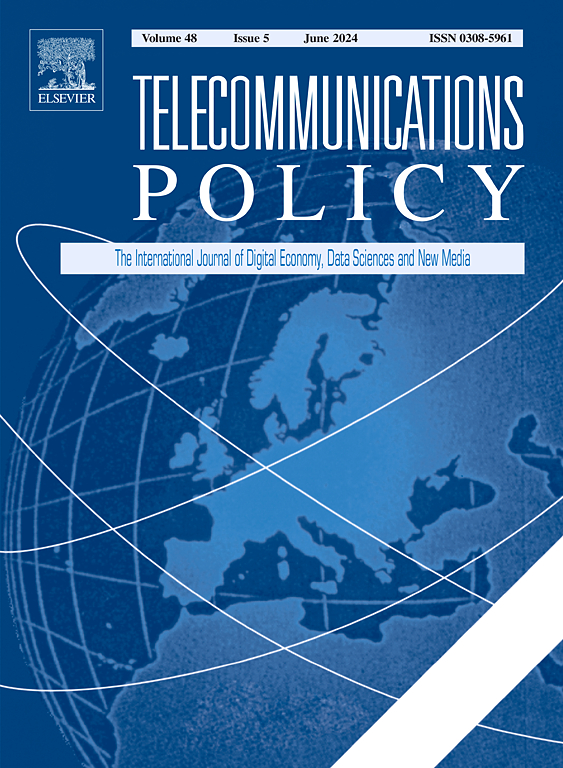The effect of gender inequality in internet access on energy poverty: A preliminary investigation in developing countries
IF 6.4
2区 管理学
Q1 COMMUNICATION
引用次数: 0
Abstract
Energy poverty persists as a significant challenge in emerging nations, as restricted access to contemporary energy services impedes economic growth, education, and overall development. Simultaneously, gender inequality in internet access intensifies social and economic disadvantages, especially for women and girls. This research analyses the impact of gender disparity in Internet access on energy poverty across a panel of 78 developing nations. Employing two-stage instrumental variable least squares (IV-2SLS) methodology, we utilise the availability of secure Internet servers as an instrument for gender inequality in Internet access. Our findings indicate that increased gender equality in Internet access correlates with a decrease in energy poverty. The results indicate that when women have equal internet access, they are more inclined to participate in economic activities that enhance energy access and therefore reduce energy poverty. Mediation analysis indicates that economic growth, education, and income inequality serve as transmission pathways. Policy recommendations are formulated.
互联网接入中的性别不平等对能源贫困的影响:发展中国家的初步调查
能源贫困仍然是新兴国家面临的一个重大挑战,因为获得现代能源服务的限制阻碍了经济增长、教育和整体发展。同时,互联网接入方面的性别不平等加剧了社会和经济劣势,尤其是对妇女和女童而言。这项研究分析了78个发展中国家在互联网接入方面的性别差异对能源贫困的影响。采用两阶段工具变量最小二乘(IV-2SLS)方法,我们利用安全互联网服务器的可用性作为互联网接入中性别不平等的工具。我们的研究结果表明,互联网接入方面性别平等的增加与能源贫困的减少有关。结果表明,当女性拥有平等的互联网接入时,她们更倾向于参与促进能源获取的经济活动,从而减少能源贫困。中介分析表明,经济增长、教育和收入不平等是传导途径。制定政策建议。
本文章由计算机程序翻译,如有差异,请以英文原文为准。
求助全文
约1分钟内获得全文
求助全文
来源期刊

Telecommunications Policy
工程技术-电信学
CiteScore
10.80
自引率
12.50%
发文量
122
审稿时长
38 days
期刊介绍:
Telecommunications Policy is concerned with the impact of digitalization in the economy and society. The journal is multidisciplinary, encompassing conceptual, theoretical and empirical studies, quantitative as well as qualitative. The scope includes policy, regulation, and governance; big data, artificial intelligence and data science; new and traditional sectors encompassing new media and the platform economy; management, entrepreneurship, innovation and use. Contributions may explore these topics at national, regional and international levels, including issues confronting both developed and developing countries. The papers accepted by the journal meet high standards of analytical rigor and policy relevance.
 求助内容:
求助内容: 应助结果提醒方式:
应助结果提醒方式:


